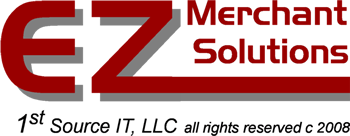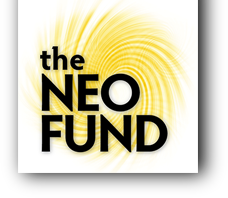Charity: The NEO Fund
Our mission:
Sustainable community development for the poorest of the poorThe NEO Fund was born out of an epic fail.
In 2007 a bunch of us traveled to the city dump in Managua, Nicaragua, where thousands of poor people live. We wanted to do good deeds. But as gringo foreigners we had no idea how to help and our best idea was to give stuff away. We gave beanie babies to dying children, hard candy to slum kids, tiny foreign coins to beggars in the street, and serious cash (for us) to impoverished villagers who were told by another gringo they should start a farm. Which, predictably, would eventually fail.
Our efforts were well-intentioned, but naïve and unproductive. And they forced the question: How can we help the poor in an organic way that actually works?
The NEO Fund was launched about a year later, when two Portland businessmen (from the original group) partnered to start a new outreach in the slums of Managua. We were joined by businesses, civic organizations and churches who wanted to help. Together we hired local leaders Ramon & Miriam Baca, who called their first activity "a ministry of walking around."
The first thing we did right was to work through trusted, deeply imbedded, caring, local leaders.
These leaders met people and began to serve the poor, the abused, the neglected and the addicted. Young leaders flocked to them. Within a year we were serving over a thousand people: feeding poor children, educating them and helping to pay for their medical care. These were strategic investments that actually started making a long-term difference in the lives of these families struggling to live on less than $1 a day.
The second thing we did right was to make friends with the people at ground level, listen to their stories, learn their strengths and understand their needs.
And along the way we made a discovery: One of the things the poor need most is not a handout, but a sustainable way to make money. We learned that lending money to the poor addresses their most apparent needs. And it does so in a way that dignifies them. It refuses to create imbalance in the relationship; it doesn't feed stereotypes about the haves and have-nots, rich and poor, givers and receivers, the powerful and the powerless. It's not a handout, it's just a hand. And when the new entrepreneur pays off her loan, she is filled with pride and confidence. Her marginalized status – a poor person – has shifted somehow. Giving perpetuates the status quo. Lending builds hope.
The third thing we did right was to follow through: to stop giving handouts and lend to the poor instead.
It worked. Imagine that you donated $1 for us to extend as loan capital. For the past 5 years your dollar has been busy! It may have been loaned to Aurora, who used it to build her plastic recycling business, and then paid it back. Then it went to Juset so she could buy a refrigerator/freezer, to build her juice business, and then paid back again. Your dollar might have funded a french-fry cart, bought a horse, paid for a battery charger, purchased chickens, beans, pigs, oil, corn, fuel or a pickup truck. By now your dollar has cycled through 9 or 10 borrowers, helping them build successful business and dramatically improving their lives and their children's lives. At least 50 or more people have benefitted from your one gift – so far.
And your dollar is still working!
Not only that, it's growing! Each borrower pays a one-time fee of 20% for their loan. These fees cover the administrative and management costs for the loans and also slowly increase our pool of loan capital over time. So, the dollar you gave in 2009… is now close to $2.
Do these fees degrade, anger or penalize the poor? No! On the contrary, they dignify our relationship with our borrowers. They are a constant reminder that our borrowers aren't the recipients of "charity" or "handouts". They are proud entrepreneurs, who feel good about their accomplishments and tell everyone they know about the program – so much so that nearly all our growth happens by word of mouth.
The fourth thing we did right was invest in methods that are sustainable and take the long view.
Our mission at NEO starts with the word "sustainable." Lots of relief and development money gets spent once and then it's gone. But the idea of a gift that keeps giving – a gift that increases over time – and is still working for the poor a year or five years later… now that's sustainable.
The fifth thing we're doing is planning for the future.
After testing and proving our lending program in Nicaragua, we've been invited to expand to Haiti, working through an existing local nonprofit there. In the coming days we expect to tell more and more stories of lives changed by NEO loans and the healthy relationships that accompany them. And we're eagerly looking toward additional partnerships in new places in the very near future! In time we imagine community-based, relationally-driven NEO Fund loans helping to lift up the poorest of the poor all over the world.

